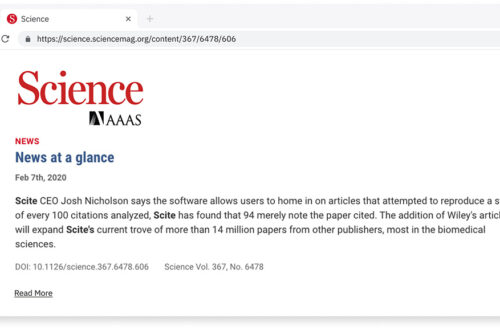
Introduction to AI-powered Summarization
Understanding the Role of AI in Scientific Article Summarization
When it comes to simplifying the complexities of scientific articles, AI-powered summarization plays a crucial role. By utilizing artificial intelligence, researchers and scientists can effectively condense lengthy research papers into concise summaries without losing essential information. The technology behind AI allows for an efficient extraction of key points, helping readers grasp the core concepts of articles quickly. This automated process not only saves time but also enhances accessibility to complex scientific information, making it easier for a wider audience to engage with research findings.
Benefits of Using AI for Summarizing Scientific Articles
The benefits of employing AI for summarizing scientific articles are manifold. Firstly, it significantly reduces the time required to sift through extensive research papers, enabling researchers to focus on analysis and innovation. Secondly, AI-generated summaries enhance comprehension by highlighting essential information, aiding both experts and non-experts in understanding the research content. Moreover, by automating the summarization process, AI ensures consistency and accuracy in summarizing vast amounts of scientific data. Overall, the integration of AI technology in scientific article summarization streamlines the research process and promotes knowledge dissemination efficiently.
How AI Summarization Works
Natural Language Processing in AI Summarization
In AI summarization, Natural Language Processing (NLP) plays a vital role in understanding and interpreting the content of scientific articles. By utilizing NLP techniques, AI algorithms can analyze text, extract key information, and generate concise summaries that capture the essence of the original papers. This process enhances readability and accessibility for a wide range of audiences, from researchers to individuals interested in scientific advancements.
Machine Learning Algorithms for Summarization
Machine Learning algorithms are fundamental in training AI models to recognize patterns and generate accurate summaries. By processing large volumes of text data, these algorithms can identify important concepts, relationships, and themes within scientific articles. Through continuous learning and refinement, AI-powered summarization tools improve their summarization capabilities, ultimately benefiting users by providing comprehensive and digestible insights into complex research findings.

Advantages of AI Summarization Tools
AI summarization tools offer significant advantages in various fields. By incorporating Natural Language Processing (NLP) techniques, AI algorithms can efficiently process and summarize scientific articles. This streamlined approach saves researchers time and effort, increasing overall research productivity. Additionally, users benefit from improved accessibility to vast amounts of information. Machine Learning algorithms enable these tools to identify key concepts and themes rapidly, providing concise summaries that capture essential details. With continuous learning, AI summarization tools enhance comprehension and facilitate easier access to complex research findings for broader audiences.

Challenges and Limitations of AI Summarization
When it comes to AI summarization tools, challenges and limitations exist alongside their benefits. Ensuring accuracy and reliability in the generated summaries poses a significant hurdle. Despite advancements, there is still a need to fine-tune algorithms to minimize errors and maintain factual correctness. Ethical considerations also play a crucial role in AI summarization. Issues such as bias in data selection and potential misuse of summarized content demand careful attention. Addressing these challenges will be essential for enhancing the trustworthiness and ethical use of AI summarization tools in various domains.
Comparison of AI Summarization Tools
In the realm of AI summarization tools, understanding the nuances of various platforms is crucial. Leading AI summarization platforms offer unique features and capabilities that cater to different user needs. The overview of these platforms sheds light on their strengths and limitations, aiding users in making informed decisions. Comparing features and functionality enables individuals to select a tool that aligns with their requirements. By exploring a variety of AI summarization tools and their offerings, users can enhance their summarization tasks, ensuring efficiency and accuracy in content processing.




